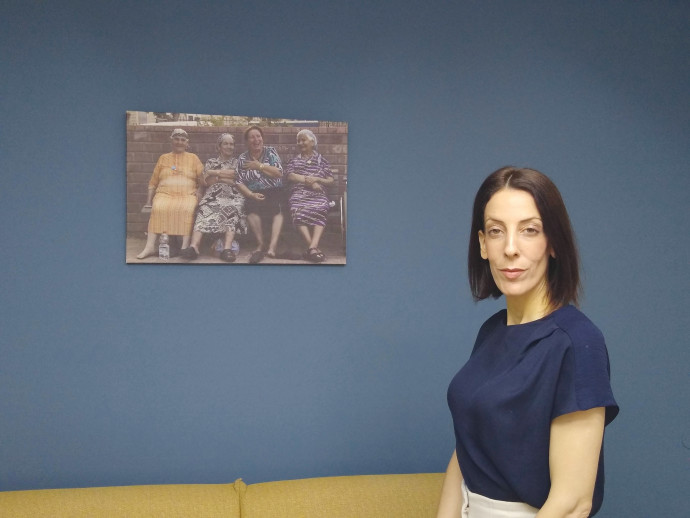Women are better mayors than men because they are more familiar with the services that cities offer, Yeruham Mayor Tal Ohana said.
“I think we understand much better what citizens need because we consume more city services,” Ohana said. “I hope we will soon see more women serving in this position.”
Currently Ohana is one of the 14 women in Israel who head a city or a local authority out of 257 municipalities in the country.
She was elected in 2018, the first woman to hold the position in the 11,000-strong town.
Ohana’s connection to Yeruham goes deep. Not only was she born and raised there, but her great-grandparents who made Aliyah from Morocco helped found it.
“For me it has a great honor to lead the town that my great-grandmother helped establish in the early years of the state, ” she said. “I feel I live a meaningful life.”
Tal Ohana will speak at the Women Leaders Summit on February 22. Learn more >>

Before becoming mayor, Ohana served for eight years in the city council starting from the age of 26.
Under her leadership, the town - located in the Negev desert some 27 kilometers southeast of Beersheba - has been transformed.
She has created a center for female entrepreneurs to support local women in developing skills, and helped launched CaNegev, Israel’s first cannabis ecosystem, a joint initiative between Perrigo, OurCrowd and BOL Pharma.
Ohana is also working to open a Women’s Health Center, a project that is especially close to her heart.
“I want our residents to be able to get an ultrasound and other basic checks without having to commute long distances,” she said. “We are working to secure the funds. I hope the dream will come true.”
It is crucial that women support women when it comes to their professional and political careers, according to the mayor.
“I can personally say that I speak and try to help several women that are dreaming to be in local politics,” she said. “I'm trying to push them and to share with them my knowledge and experience.”
“I feel that we are responsible for it,” she added. “Women are looking at us and said ‘okay, if you did it, maybe I can do it too’.”
The hardest obstacle to overcome is the fact that in Israel, city council members do not get paid, she said.
“The fact that one needs to volunteer for many years in the city council before becoming mayor is a challenge,” she said. “For a young woman who has her career and a family to think of, putting in many hours as a volunteer to become a politician is a problem. I think the solution is paying city council members as it happens in many countries in the world.”
However, when in a few months Israelis will be once again called to the polls to vote in local elections, Ohana is confident that the number of femal mayors will significantly grow.
“If we are now 14 women, I believe that after the next election we will be 30,” she said.
Regarding national politics, Ohana believes that women have made very important progress, even though the current governing coalition has a very limited number of females (nine out of 64 seats).
“I believe that it is due to the fact that in this coalition there are more parties whose members live according to a religious lifestyle, but I do not see obstacles for women in national politics,” she said.
Asked if in the future she plans on moving to national politics, Ohana simply answered yes.

Women Leaders Summit | February 22 at Habait Hayarok in Tel Aviv | Buy tickets >>
